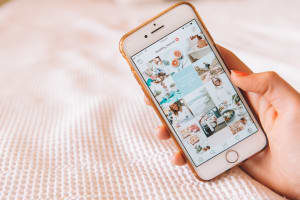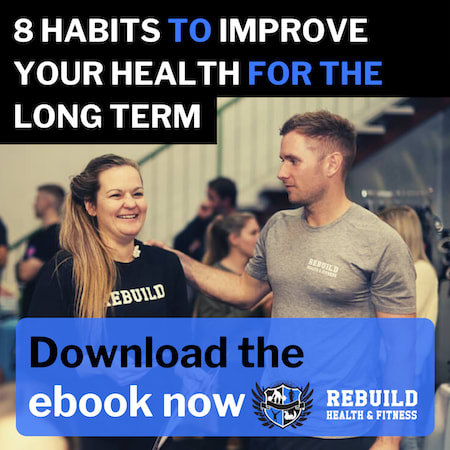
But it's interesting to take a deeper look into how influencers actually function, what they promote and how they go about influencing people's minds; especially when coming from and speaking for the health industry. An Australia Talks survey recently found that less than 5% of the population trusts influencers - but a recent HypeAudit study found that influencers gain an average $4.78 in earned media per $1 spent. So there’s a disconnect - but where does it lie? This week's Rebuild Health and Fitness Podcast talks about the implications of influencers on the health industry, along with our coaches, Sean and James, and Rebuild’s media specialist, Cait Davey. As the influencer industry grows to a staggering $13.8 billion this year, there’s criticism of influencers, and increasing requirements for regulation. The reason for criticism in this space is simple - unlicensed, unaware and uneducated individuals, or social media influencers, in this case, cannot be advertising products or share information that social media users may digest without questioning or doing their own research. In times where false information being shared through social media has skyrocketed, there must be a system in place to ensure influencers are not selling and advertising products that do more harm than good. With what's known to us on the outside, there are some regulations in terms of advertising. Cait says: "The Australian Influencer Marketing Council has implemented rules about disclosing paid media but they don't regulate misinformation or what content people are distributing; they just regulate what's being reported in terms of sponsorship and marketing." However, while the lives of people come into question, there must be some sort of authority in place to monitor how influencers may be impacting them. It's interesting to look at why people believe influencers in the first place and how they're able to put their trust into these individuals online who've created a name for themselves. Cait explains: "There’s a study on source credibility (Ohanian’s study, 1990) and one of the three elements of it is attractiveness - people are more inclined to trust you if you look good." She adds: "Just because someone has a good body, people think they know what they're talking about in a nutrition space sometimes. They go with that engagement that they get and it spirals out of control. People aren't being questioned about what their knowledge is or where they get this knowledge from.” The fundamental issue with this, is that when influencers are unqualified, and they’re trusted, they can offer advice that is detrimental to people’s health, and followers just might take that advice. While influencers who aren't as well-known as others may be able to get away with such social media activity, the trio discusses examples of celebs and how they've been caught in their tracks, lying. James says, "A couple of celebs have had so much plastic surgery, which could be from an insecurity standpoint so I don't want to say more on that but like they've got implants, enlargements and even liposuction done. Now they're selling fitness plans and skinny teas saying, 'This is how I did it,' but this is not how you did it. There has to be some legislation here, there has to be some legality when you say that, you can't do this, you're simply lying to people." Cait adds on to the discussion using Belle Gibson as her primary example. "Belle Gibson is this influencer who received huge interest and has even worked with Apple on app development. She worked with Penguin and published her book called 'The Whole Pantry' where said that she healed her brain cancer through eating clean and eating well. Turns out she never had cancer in the first place, she was disgraced and was fined for misrepresenting that she donated money to charity rather than any of the other stuff." The infamous Kim Kardashian too was part of this segment as she was promoting a morning sickness drug, claiming that it helps her with pregnancy nausea. The post led the FDA to intervene as she had failed to disclose all side effects of the drug; they had her take down the post, edit the caption and post again. Coach Sean goes on to give the last example involving a diet drink that had cyanide in it. "Three big names, Lauren Goodger, Mike Hassini and Zara Holland were caught auditioning for a poisonous cyanide drink in 2019. They were secretly filmed asking to promote a fake diet drink by the BBC. The ad campaign was a setup, the drink had cyanide as an ingredient and they didn't even check." The trio shared a few tips on how to differentiate between the hordes of information being fed to you every day through social media. Being critical is key, though there are regulations in place, there are a billion people on Instagram and it's not possible for the platform to vet each person, each caption and each post. Question everything - Why are they saying this, why are they selling this, what is the agenda behind this person. If you're using social media as a source of information, always check your sources. The conversations between Sean, James and Cait bring to light a lot of issues at hand; the good and bad sides of influencers and the dire need for content regulation on social media, in the health industry at least. Influencers hold great power and influence in their hands, however only some make good use of it. As was discussed in the podcast, some influencers do put their position to good use and share informative and quality content, guide their audience towards the best of practices when it comes to their health. On the other end, however, there are those who are driven by engagement, money and an increase in followers. Not only is this incredibly irresponsible on their part, but also quite harmful for social media users who may follow their lead without doing much research of their own. Since Instagram is a massive platform, it truly is unrealistic for them to monitor everything that’s up on the platform. For this, relevant committees should be set up to not only monitor but also take action when there is a clear case of misinformation on social media.
Influencers have undoubtedly made a mark on the world of social media. Hailing from different specialties, they're usually seen educating or entertaining the masses, promoting products, creating inspirational content and more; all because these social media platforms and their users have given this position by placing them on a pedestal. Influencers and regulations
Credibility
Celebrity scandals
How to stay safe during the digital age?

